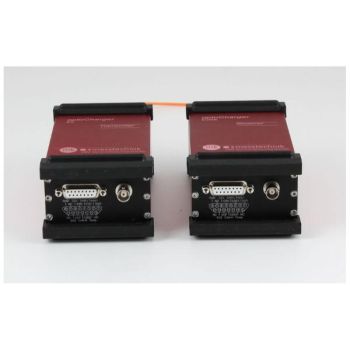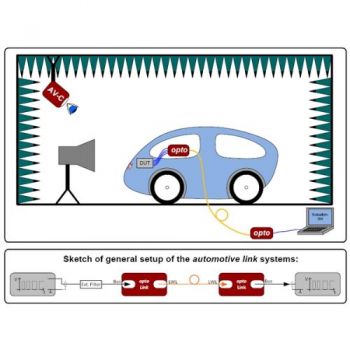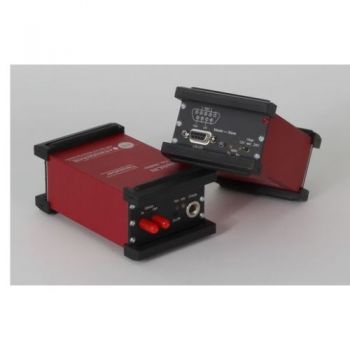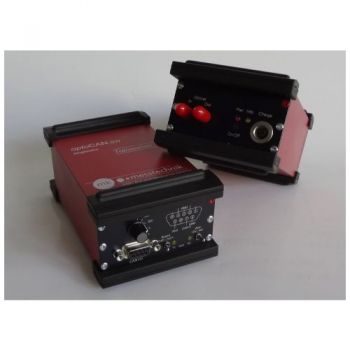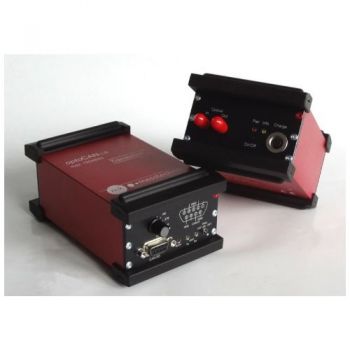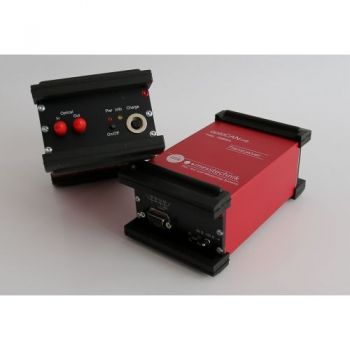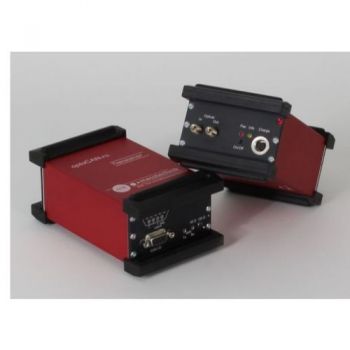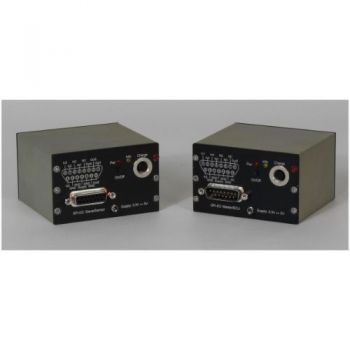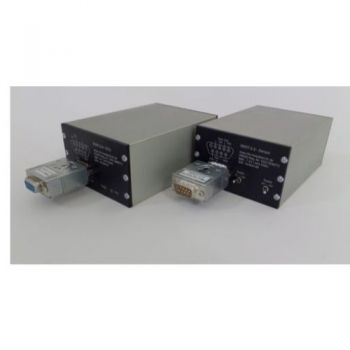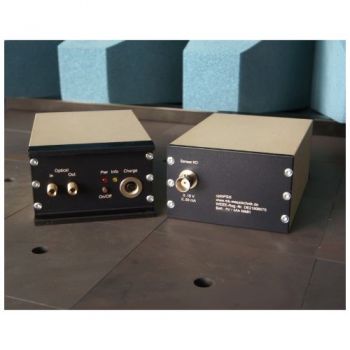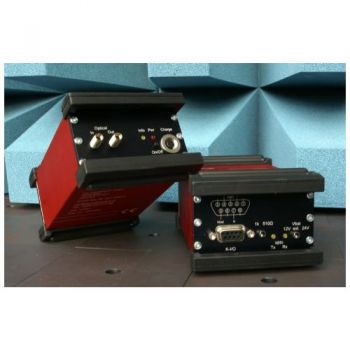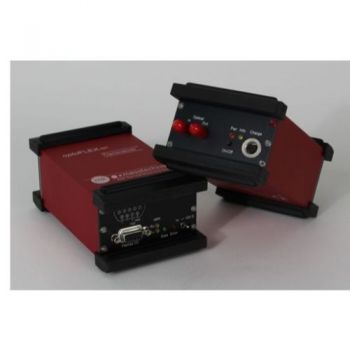Products
- Bidirectional Optical Isolation: 20 m multimode fiber link (62.5/125 µm) for galvanic isolation of Control Pilot, CAN, and auxiliary signals.
- Long Life Battery Power: Internal 8.4 V, 4 Ah NiMH pack delivers up to 10 hours of continuous operation.
- Robust Construction: Anodized aluminum housing with rubber bumpers and grounding lug, rated for CISPR 25 Class 5 environments.
- Versatile Signal Interfaces: BNC connector for Control Pilot plus D SUB 15 female for CAN, temperature sensors, connector lock control, etc.
- Wide Protocol Support: Compatible with CCS, CHAdeMO, and GB/T charging standards for comprehensive EVSE/EV EMC testing.
- Compact & Portable: 140 × 86 × 65 mm enclosure weighing ≈760 g—ideal for on site and laboratory test setups.
opto, Fiber-optic, Automotive Link Overview
The optoLIN system can be used for the optical transmission of LIN signals with transmission rates of up to 20kbit/s. It consists of two identical battery supplied transceivers connected to each other with an optical fiber. With the optical transmission and the shielded case, the system is well equipped for EMI and EME tests.
The optoCAN-SW system can be used for the optical transmission of single-wire CAN signals with transmission rates of up to 33kbit/s (max. 83kbit/s). It optical transmitter of single-wire CAN signals: optoCAN-SWconsists of two identical battery supplied transceivers connected to each other with an optical fiber. With the optical transmission and the shielded case, the system is well equipped for EMI and EME tests.
The optoCAN-LS system can be used for the bidirectional optical transmission of CAN optical transmitter for low speed-CAN signals with transmission rates of up to 125kbit/s. It consists of two identical battery supplied transceivers connected to each other with an optical fiber. With the optical transmission and the shielded case, the system is well equipped for EMI and EME tests.
The optoCAN-HS system can be used for the bidirectional optical transmission of CAN signals with transmission rates of up to 1Mbit/s. It consists of two identical battery-supplied transceivers connected to each other with an optical fiber. The optical transmission and the shielded case make the system well equipped for EMI and EME tests. The optoCAN-FD is fully backward-compatible with HS and is highly recommended.
The optoCAN-FD system can be used for the bidirectional optical transmission of CAN-signals with transmission rates of up to 10 Mbit/s. It consists of two identical battery supplied transceivers connected to each other with an optical fiber. With the optical transmission and the shielded case, the system is well equipped for EMI and EME tests.
The optoSPI-HS system can be used for the bidirectional optical transmission of SPI signals with transmission rates of up to 1Mbit/s. It consists of two battery supplied transceivers connected to each other with an optical fiber. With the optical transmission of the shielded case and the external filter, the system is well equipped for EMI and EME tests.
The optoSENT system was developed for the transmission of asynchronous SENT signals (Single Edge Nibble Transfer) and exists in two different versions.
The optoSENT system was developed for the transmission of asynchronous SENT signals (Single Edge Nibble Transfer) aThis system is used for the optical transmission of PSI5-signals and allows the transmission in both directions with a sampling rate of 50 MS/s. It consists of a transceiver, supplied by batteries, for the connection of a sensor, a simplex-62,5/125µm-multimode optical cable, and a receiver with internal batteries as well.nd exists in two different versions.
The optoK system can be used for the optical transmission of K-Line signals with transmission rates of more than 30kbit/s at supply voltages of up to 24V. It consists of two identical battery supplied transceivers connected to each other with an optical fiber. With the optical transmission and the shielded case, the system is well equipped for EMI and EME tests.
This system is used for the optical transmission of Flexray-signals and allows the transmission in both directions with a sampling rate of 10 MBit/s. It consists of two identical transceivers, supplied by batteries, and a simplex-62,5/125µm-multimode optical cable (1-fiber-version available on demand).

